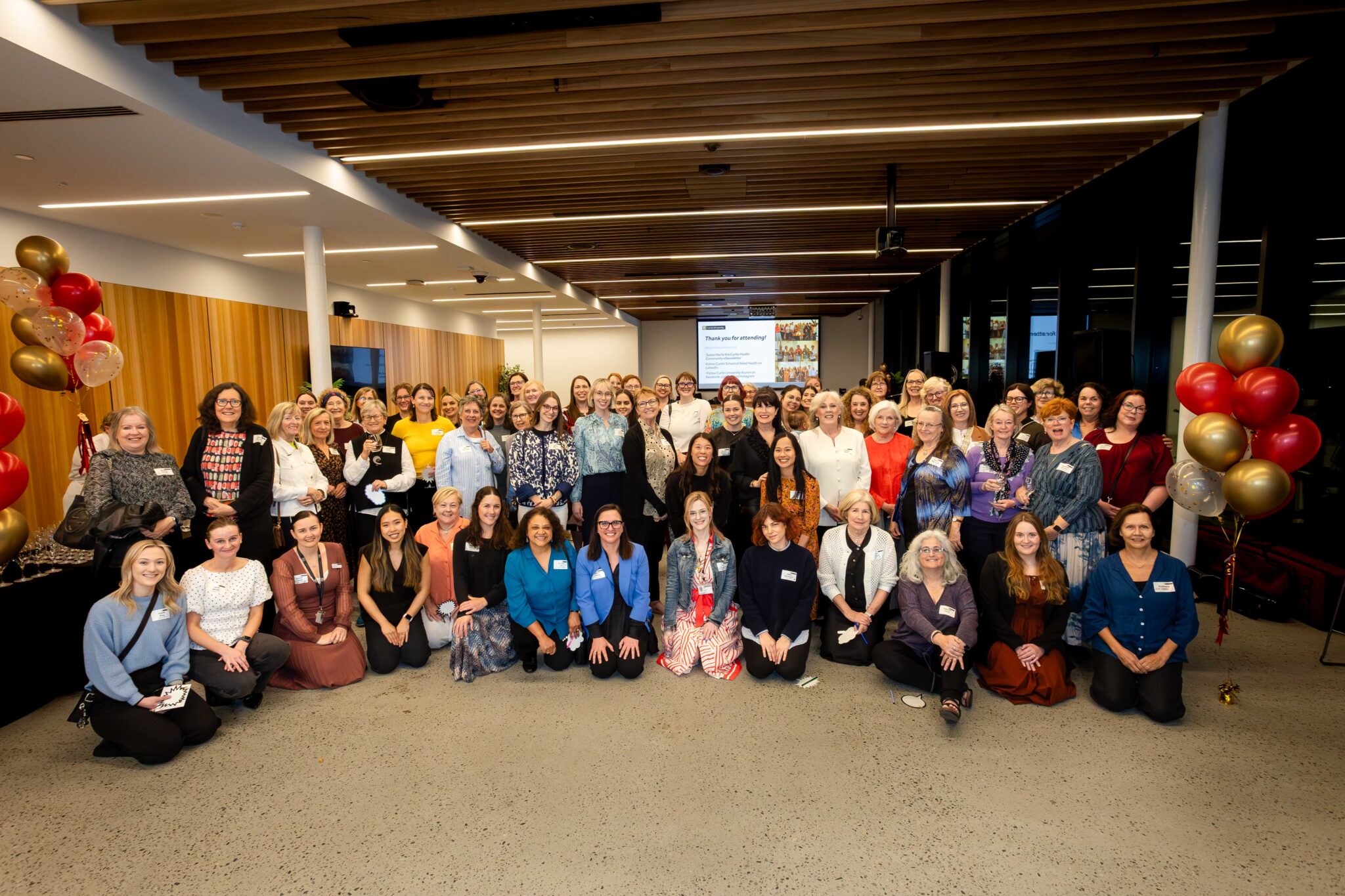On International Stuttering Awareness Day, Western Australia’s largest stuttering treatment clinic celebrated four decades of supporting more than 4,000 people ranging from toddlers to the elderly who are living with the speech disorder.
The Curtin Stuttering Treatment Clinic opened its doors at Curtin University in 1985 with almost 2,500 students undertaking their practical placements through the clinic since that time.
One in 100 Australians stutter – and for some, the consequences can impact every part of their life. Researchers have seen first-hand the toll it can take on a person’s confidence, social life, employment and general wellbeing.
As part of the anniversary celebrations, which also includes 50 years of delivering speech pathology training at Curtin, former students and esteemed alumni gathered with current and former staff yesterday – on International Stuttering Awareness Day.
This year, the Curtin Stuttering Treatment Clinic played a vital role in Nature Genetics-published research that identified the DNA markers for stuttering, paving the way for clinicians to predict which family members will experience the speech disorder affecting more than 400 million people worldwide. The research was a collaboration with leading geneticist Professor Shelly Jo Kraft from Wayne State University in Michigan, in the United States of America, who is also in Perth for the anniversary celebrations.
Curtin University Vice-Chancellor Professor Harlene Hayne said the clinic’s dedicated staff had made an immense difference to the lives of the children, adults and families they had helped find their voice again.
“For 40 years, the Curtin Stuttering Treatment Clinic has offered a world-class service to the people of Western Australia living with a stutter, while also carving out an international reputation for research into new treatment approaches and training the next generation of speech pathologists,” Professor Hayne said.
Curtin Stuttering Treatment Clinic Founder Associate Professor Janet Beilby said she could not have imagined “in her wildest dreams” what the clinic would have achieved when she first opened the doors in 1985.
“A team of talented clinicians has worked tirelessly with our amazing students to ensure Western Australian families receive world-leading care and treatment,” Associate Professor Beilby said.
“Our students have developed their skills while we’ve learnt to be better clinical educators from them – and the benefits have flowed onto the families we have helped. From my point of view, it’s been an incredible privilege to help make someone’s life better.
“While some people have only needed a bit of guidance, others have needed substantial help over a long period of time. I’m continuing to learn every single day, and it hasn’t stopped – it’s been an evolution of knowledge. We have been so lucky to carry out scientific research while undertaking the clinical work. That has been such an amazing marriage – we’ve been able to trial new treatments immediately and gather strong evidence for their effectiveness.”
A speech disorder characterised by repetitions, prolongations, and unnatural pauses in the flow of the person’s speech, stuttering typically emerges in early childhood, around the age of two to four years, and can last a lifetime in some cases.
Professor Hayne said it had been a milestone year for Curtin’s School of Allied Health with exercise sciences celebrating its 10th anniversary and speech pathology its 50th anniversary this year.
“Speech pathology is one of our oldest health disciplines at Curtin,” Professor Hayne said. “For more than 30 years, Curtin was the sole provider of speech pathology, playing an integral role in shaping the profession and providing vital services to our community, from communication and language services, literacy and learning support, to social communication and cognitive skills, swallowing and feeding services as well as medical and disability support.”
For more information about the Curtin Stuttering Treatment Clinic, visit here. Further information on Curtin’s speech pathology program can also be found here.



